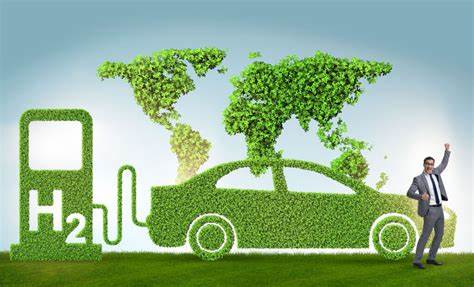
Introduction
Hydrogen Fuel Cell Vehicles and Propane-Powered Vehicles are two emerging technologies in the automotive industry. While both aim to reduce the carbon footprint and dependence on fossil fuels, they differ in terms of their fuel sources and mechanisms. This article provides an analysis of these technologies, exploring their historical backgrounds, key concepts, advantages and benefits, case studies, current trends, challenges, future outlook, and significance.
Historical Background
Hydrogen Fuel Cell Vehicles have been in development since the mid-20th century, with significant advancements in recent years. Propane-Powered Vehicles have a longer history and have been utilized in various applications, including transportation, for several decades. Understanding the historical context of these technologies helps us appreciate their evolution and potential.
Key Concepts and Definitions
Hydrogen Fuel Cell Vehicles operate by converting hydrogen fuel into electricity through a chemical reaction in fuel cells. These fuel cells play a crucial role in generating power for the vehicle’s electric motor, resulting in zero-emission transportation. Propane-Powered Vehicles utilize propane gas as a fuel source. Propane is stored in a tank and combusted in an internal combustion engine to propel the vehicle.
Main Discussion Points
Advantages and benefits of Hydrogen Fuel Cell Vehicles
Hydrogen Fuel Cell Vehicles offer numerous advantages. Firstly, they produce zero emissions, helping mitigate air pollution and reduce the carbon footprint. Additionally, these vehicles have the potential for a longer driving range compared to electric vehicles, making them suitable for long-distance travel. Moreover, hydrogen fuel cell vehicles can be refueled in a matter of minutes, providing a significant advantage over electric vehicles in terms of refueling time.
Advantages and benefits of Propane-Powered Vehicles
Propane-Powered Vehicles also offer several advantages. Firstly, propane is a relatively low-cost fuel source compared to gasoline and diesel, resulting in significant cost savings for vehicle owners. Moreover, the infrastructure for propane distribution and refueling stations is already widely available, making it convenient for vehicle owners to access fuel. Furthermore, propane can be used in various types of vehicles, providing flexibility in terms of vehicle compatibility.
Case Studies or Examples
Real-world examples of successful implementation of Hydrogen Fuel Cell Vehicles include major automotive manufacturers such as Toyota and Hyundai. These vehicles have showcased the feasibility and reliability of hydrogen as a fuel source. Similarly, numerous fleets and commercial vehicles have successfully adopted Propane-Powered Vehicles, demonstrating their effectiveness and practicality in different industries.
Current Trends or Developments
Recent trends in the adoption and usage of Hydrogen Fuel Cell Vehicles indicate a growing interest and investment in this technology. Governments and organizations worldwide are embracing hydrogen as an alternative fuel source in their efforts to achieve sustainability goals. Likewise, Propane-Powered Vehicles are gaining popularity in sectors such as transportation, agriculture, and forklift operations. Ongoing research and development are also uncovering advancements in both technologies, further enhancing their potential.
Challenges or Controversies
While Hydrogen Fuel Cell Vehicles offer numerous benefits, challenges remain in terms of infrastructure development, including the establishment of hydrogen refueling stations. Additionally, concerns regarding the energy-intensive process of hydrogen production need to be addressed. In the case of Propane-Powered Vehicles, controversies surround the environmental impact of propane extraction and combustion, as well as potential safety risks associated with propane storage and handling.
Future Outlook
The future implications of Hydrogen Fuel Cell Vehicles are promising, with the potential for widespread adoption as hydrogen infrastructure continues to expand. Advancements in fuel cell technology and increased investment in research and development are expected to drive the growth of this technology. Propane-Powered Vehicles are likely to continue playing a significant role in sectors where propane is readily available, offering a cost-effective and versatile fuel option.
Conclusion
In conclusion, Hydrogen Fuel Cell Vehicles and Propane-Powered Vehicles represent innovative solutions to reduce carbon emissions and enhance sustainability in the transportation sector. While each technology has its unique advantages and challenges, both contribute to the ongoing efforts to achieve a greener and more sustainable future. Understanding the key concepts, benefits, case studies, and future outlook of these technologies is crucial in exploring their potential and fostering an informed discussion.
References
For further reading or research on Hydrogen Fuel Cell Vehicles and Propane-Powered Vehicles, consider exploring reputable sources such as scientific journals, industry reports, and government publications. Some recommended sources include the International Journal of Hydrogen Energy, the U.S. Department of Energy’s Alternative Fuels Data Center, and the Propane Education & Research Council’s website.